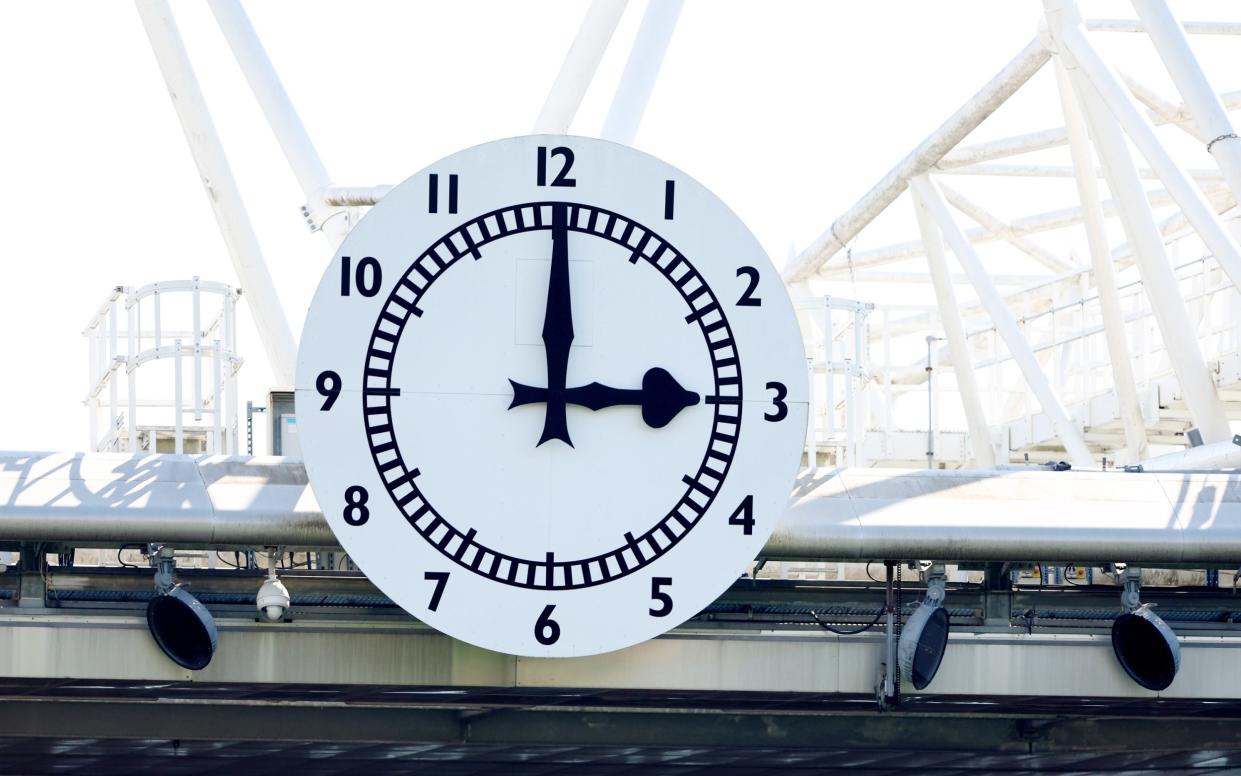The Premier League and broadcasters have killed the 3pm blackout by stealth

The continuing success of the Premier League depends on its numbers rising. Viewing figures, social media likes, and the amount broadcasters will pay to show its product. No executives will worry for long about any collateral damage, like that to Saturday 3pm kick-offs.
This latest deal cedes a further 87 of the Premier League 380-game season to live TV, leaving just 113 potential Saturday 3pm games, a touch below one in three of its fixtures. Over what is usually a 40-week season that equates to an average of 2.8 games each week played at a time once understood as football o’clock.
Given that broadcasters select the choicest games in order each weekend, like kid captains picking sides in the playground, this will mean many more Saturday 3pm slots like last weekend’s. Arsenal vs Wolves was a mildly enticing match, albeit with little interest to the neutral. Brentford vs Luton and Burnley vs Sheffield United brought nine goals but neither is the sort of fixture Sky and TNT Sports had in mind when spending billions.
With no offence to Paul Heckingbottom’s Sheffield United (RIP), they were not appointment television. Games like theirs at Turf Moor were certainly not the sort worrying inventors of the 3pm blackout in the 1960s. It was Burnley’s Bob Lord who led his fellow Football League chairmen to enshrine rules forbidding live coverage of Saturday games between 2:45pm and 5.15pm. Lord believed televised games at that time would jeopardise attendances, in an era when gate receipts were a club’s main source of income.
This is now thinking from a different galaxy, although it is team’s like Lord’s Burnley who play most frequently in the 3pm Saturday slot. Their nine Saturday 3pm games so far in 2023-24 are a league high. At the end of the season the list of teams who have played most at that time is a reverse-ordered Premier League by size of support. As such, Manchester United have never played more than seven Saturday 3pm league games in a season within the past six years.
The oddity of a staggered schedule in the pandemic Premier League showed that ignoring the blackout was possible, even if the alternative option of attending a game in person had been removed. It was some surprise that this half-opened window was not forced decisively afterwards, but the Premier League and the broadcasters have found another way around an increasingly vexing problem.
How you feel about it probably depends on your relationship with football. If by circumstance, financial restriction or choice, you engage mostly through TV an end to the farce of non-live Sunday games is overdue. It is absurd that every Liverpool fan around the world could watch their team’s 4-3 slugfest against Fulham except those in this country.
Equally, as a supporter whose relationship with the game was forged in person, the sanctity of live football is important to me. I am in favour of anything which repels ‘big six’ hegemony and removes another tempting option for teenagers to stay at home when they might instead be falling in love with their local lower league club. Won’t somebody please think of the pie sales at Swindon?
Such hand-wringing was already looking a bit daft, it now feels redundant. The Premier League is English football to most younger people, the idea that 3pm Saturday kick-offs must be protected ferociously like control points in Call of Duty’s Domination mode is absurd. Now, much like players of that game, the 3pm blackout risks being killed by stealth.

 Yahoo News
Yahoo News 
